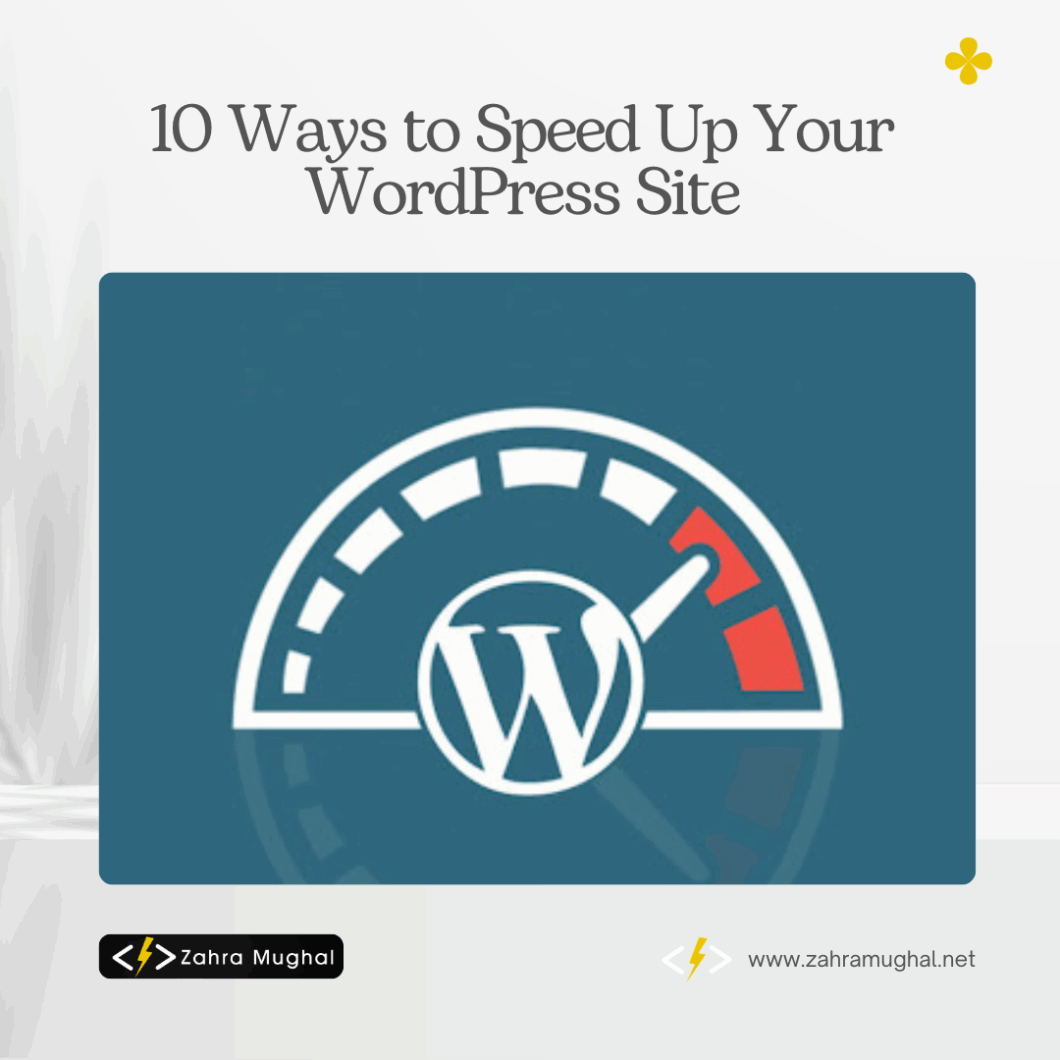Website speed can make or break your online presence. A slow-loading site frustrates visitors, increases bounce rates, and even hurts your Google rankings. As a WordPress developer with 8 years of experience, I’ve worked on thousands of websites — and one of the most common issues I solve for clients is website performance.
The good news? WordPress is flexible enough to run lightning fast, if optimized properly. In this post, I’ll share 10 proven ways to speed up your WordPress site, the same strategies I apply for my clients.
1. Choose a Reliable Hosting Provider
Your hosting is the foundation of your website. No matter how optimized your site is, if your hosting is slow, your website will be too.
What I recommend:
- Go for managed WordPress hosting like SiteGround, Kinsta, or WP Engine.
- For smaller budgets, a fast shared hosting plan like Hostinger or Bluehost can still work.
- Avoid overcrowded cheap hosting — it’s not worth the downtime and slowness.
2. Use a Lightweight Theme
Themes packed with unnecessary features, sliders, and animations often slow your site down.
Pro tip from my projects: I prefer lightweight themes like Astra, GeneratePress, or Hello Elementor. They’re fast out of the box and easy to customize for performance.
3. Optimize Images Before Uploading
Large, uncompressed images are one of the biggest culprits behind slow websites.
What I do:
- Compress images using tools like TinyPNG or plugins like Smush and Imagify.
- Use WebP format — it’s lighter and loads faster than JPEG/PNG.
- Resize images to the actual display size (don’t upload a 3000px image for a 300px section).
4. Install a Caching Plugin
Caching creates a static version of your site so it loads instantly instead of processing PHP/MySQL every time.
Best caching plugins I use:
- WP Rocket (premium, but worth it)
- W3 Total Cache
- LiteSpeed Cache (great if your hosting supports it)
5. Minify and Combine CSS/JS Files
WordPress sites often load multiple CSS and JavaScript files, which can slow things down.
How to fix:
- Use plugins like Autoptimize or WP Rocket to minify (remove unnecessary spaces/characters).
- Combine smaller files into one, reducing HTTP requests.
6. Use a Content Delivery Network (CDN)
A CDN delivers your site’s content from servers closer to your visitors, reducing load times.
CDNs I trust:
- Cloudflare (free & easy to set up)
- StackPath or KeyCDN for advanced needs
7. Limit Plugins and Keep Them Updated
Plugins are powerful, but too many (or poorly coded ones) can slow your site dramatically.
My advice:
- Only install plugins you actually need.
- Delete unused ones, don’t just deactivate.
- Always update to the latest version for performance and security.
8. Optimize Your Database
Over time, your WordPress database collects unnecessary data — revisions, spam comments, transients.
What I use:
- WP-Optimize plugin to clean and optimize databases.
- Limit post revisions to 3–5 per post (you can do this by adding a line of code in wp-config.php).
9. Enable GZIP Compression
GZIP reduces the size of files sent from your server to the visitor’s browser.
- Most caching plugins (like WP Rocket or W3 Total Cache) enable this automatically.
- You can also turn it on via your hosting cPanel.
10. Use Lazy Loading for Images and Videos
Lazy loading means images and videos only load when a visitor scrolls to them, improving initial page load time.
How to enable:
- WordPress 5.5+ has native lazy loading built in.
- For more control, use plugins like a3 Lazy Load.
Speed isn’t just about performance — it’s about user experience and conversions. Visitors expect your website to load in under 3 seconds. If it doesn’t, they leave. By following these 10 steps, you can cut down your loading time significantly.
As someone who has optimized hundreds of sites, I can say this: every website is different, but these are the core principles that always work.
Need professional help?
I’m a Top Rated WordPress Developer on Upwork with 8 years of experience, having worked on thousands of sites. If you’d like me to optimize your website for speed and performance, let’s connect.
Stay tuned for more! I’ll be publishing more insights, tips, and knowledge here to help you get the best out of WordPress.

